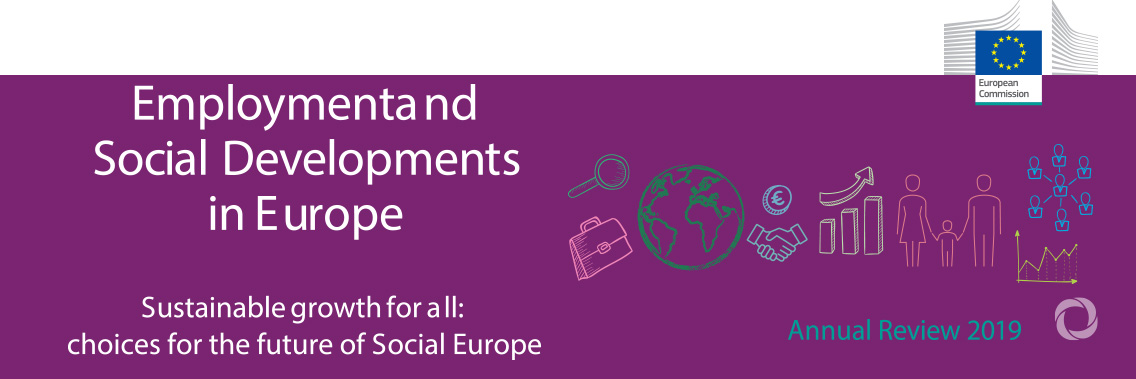The Commission has published the 2019 edition of its yearly Employment and Social Developments in Europe (ESDE) review. In light of global long-term trends such as aging, globalisation, technological transformation, and climate change, the 2019 ESDE is dedicated to the theme of sustainability.
The report shows that tackling climate change and preserving growth go hand in hand. It sets out a number of policy options that are able to preserve the EU’s competitiveness, sustain growth and spread its benefits to the entire EU population and future generations, while pursuing an ambitious transition to a climate-neutral economy. The 2019 review also confirms the continued expansion of the EU’s economic activity, with new record levels in employment and an improving social situation.
Marianne Thyssen, the Commissioner for Employment, Social Affairs, Skills and Labour Mobility, said: “This annual review shows that the recovery has taken hold in the European economy. With 240.7 million Europeans at work, up by 13.4 million jobs since the start of the Juncker Commission, the employment rate in the EU is the highest ever recorded. Unemployment in Europe is historically low. And the number of people at risk of poverty continues to drop. This is a good springboard for stepping up the delivery for citizens on the basis of the European Pillar of Social Rights. This must include a fair transition to a climate-neutral economy that makes full use of the ‘green growth’ opportunities ahead. We can improve everybody’s living standards provided that the EU and Member States, together with the social partners, invest in new and better skills, higher qualifications and social services.”
The transition to a carbon-neutral economy will increase the number of jobs available and have an impact on labour market structure, job distributions and skills needed. By 2030, the transition is expected to create an additional 1.2 million jobs in the EU, on top of the 12 million new jobs already expected.
This being said, the impacts of the transition will vary across countries and sectors. Therefore countries must prepare for this transition to make sure that people in occupations, sectors and regions that are still linked to high-carbon models are not left behind.
More generally, the review shows that to continue economic growth, the EU will need to invest in people’s skills and innovation. The ESDE review also finds that social investments, such as access to childcare and early childhood education, make people more productive and increase their well-being. Affordable and adequate housing enables Europeans to fulfil their potential on the labour market and participate in society.
Read and download the Employment and Social Developments in Europe: 2019 review.
Original source: European Commission
Published on 04 July 2019

